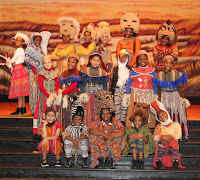Hey,
So, I am going to start by saying that I have finally
managed to pass the professional skills tests, on my last attempt which believe
me was very stressful, especially when you don’t have a plan B.
I would recommend getting a tutor even if it is just for a week,
as I improve by 12% in maths and 10% in English which for me was the difference
between a fail and a pass. I had a tutor for 2 weeks. However, I understand
that some of you would not be able to afford this, so I will go over what I
suggest that you should look at, from my personal experience.
Numeracy:
When looking at maths I suggest you focus on making sure you
know your times tables as that could be the difference from a mark or not as I
found them very helpful for the mental part of the test. I also found that
practicing mental questions to make sure you knew how to do them and if not
then find out how to helped. Make sure not to do all the questions as you will
then need to time yourself to make sure you can answer them in the 90 seconds
as that is the amount of time you are given to answer the question once you
have listened to the question. Once you have done this it is then just
practice. This is the same for the written arithmetic and data, it is all just
practice.
 I would recommend getting the passing the numeracy book as
they included how to answer questions as well as examples. I found that this
helped me, I would also use the practice papers given online. Click on the online
tests and once you have completed that test it would give you the percentage
you got as well as the percentage for each area. This means you could see by
how much you need to improve and where, as you need 63% to pass, however don’t
worry if you are a few percent off as the practice tests are stricter than the
actual test. Using these online tests, it would also give you the answers so
that you could see where you went wrong
I would recommend getting the passing the numeracy book as
they included how to answer questions as well as examples. I found that this
helped me, I would also use the practice papers given online. Click on the online
tests and once you have completed that test it would give you the percentage
you got as well as the percentage for each area. This means you could see by
how much you need to improve and where, as you need 63% to pass, however don’t
worry if you are a few percent off as the practice tests are stricter than the
actual test. Using these online tests, it would also give you the answers so
that you could see where you went wrong
Another resource is the website called ‘Numeracy ready’
which has about 20 practices whereas the professional skills website only has
4. However, this didn’t help me as my problem was mainly timing and although it
does time how long you take, it doesn’t stop after 90 seconds with the mental
area which was what I needed it to do, but you might be different to me.
Literacy:

There is not much revision you can do with spellings; I just
went over when to use double lettering in spelling as that’s what I found I was
struggling with after doing a test (do practice test to find out where you need
to improve). This rule was basically that you are putting the words together
via sounds like commit – ting = committing or prefer – ed = preferred.

It is the same with grammar; there isn’t much you can do in
preparation for this area. After doing my first 2 attempts I found some things
that I needed to remember when going into the test. As I am dyslexic I found
that when returning to go over what I had already put that I was correcting a
write answer into a wrong answer so once I had put an answer in I left it
alone. I also found that I kept on choosing ‘should of’ which doesn’t make
sense and the reason I was choosing it is because it sounds like ‘should’ve’
but this is the abbreviated version of ‘should have’ and therefore it is always
‘should have’. Another thing I found that I needed to remember was that when
looking at: me and the head teacher, the head teacher and myself and the head
teacher and I, it should always be ‘The head teacher and I’. I also looked at when to use either who or
whom which I found a bit confusing so really it is either you know or you don’t
but I will explain what I found anyway, and that is that if the answer to the
phase is a ‘him’ it will be whom and if a ‘he’ it will be who.

With punctuation, I found that it was just practice so I
went online, on google and found images of paragraphs without punctuation so
that I could practice adding the punctuation where it was needed. I also went
over the rules of commas with clauses, you know, how you need a comma of both
ends for additional information unless it is at the end on a sentence and then
it ends with a full stop.
Finally, Comprehension, this is probably the one I struggled
with the most due to the wording and therefore it is just practice so I
recommend practicing it the best you can and find the answer to see if you got
it right. If not, I recommend reading the text again to try and understand why
you got it wrong before looking at what it says in the answers for the reasons
for why those certain ones were chosen.
Thanks for reading, I hope this helps anyone taking the
professional skills tests,
Any questions or comments don’t be afraid to use the contact
box
Amy x
















































